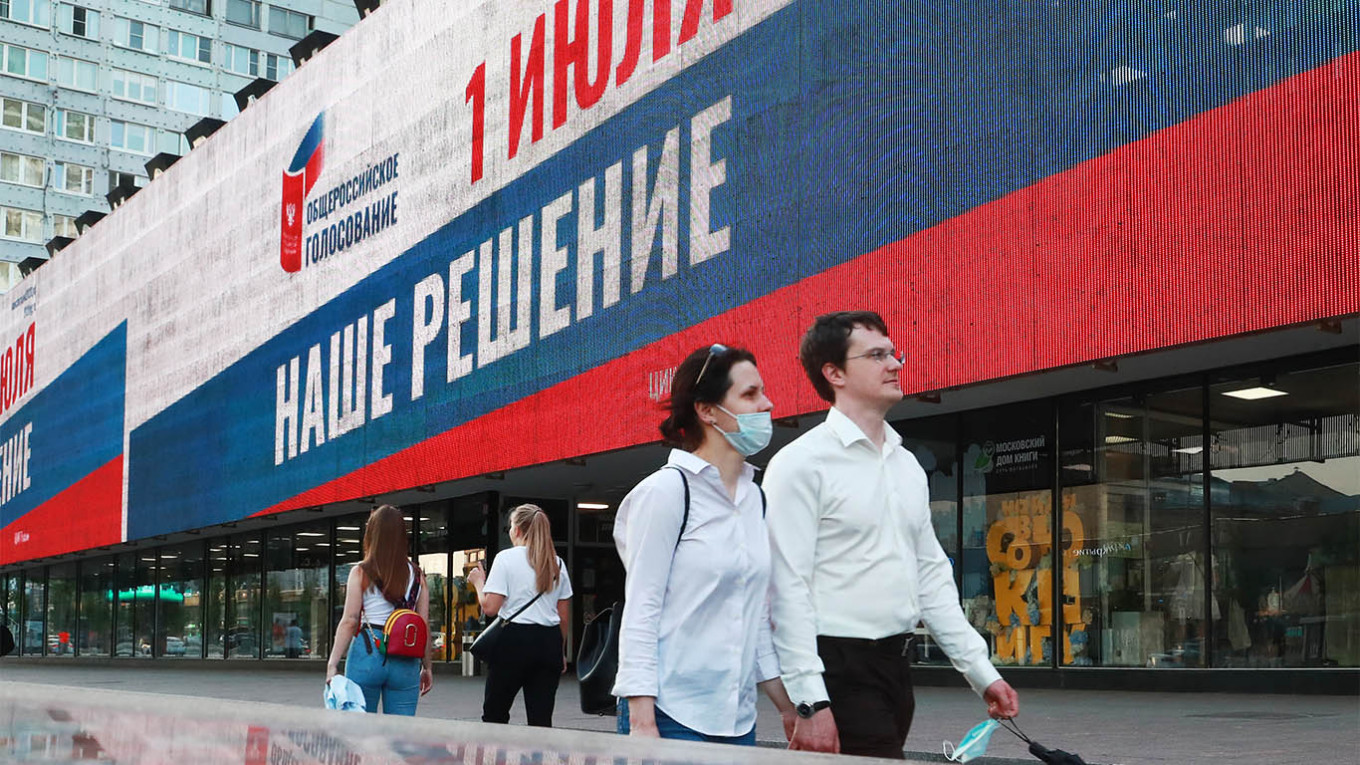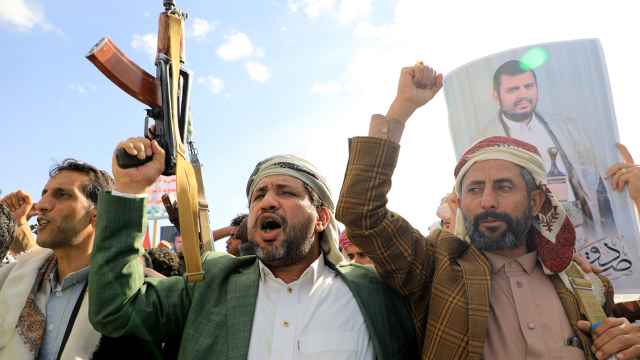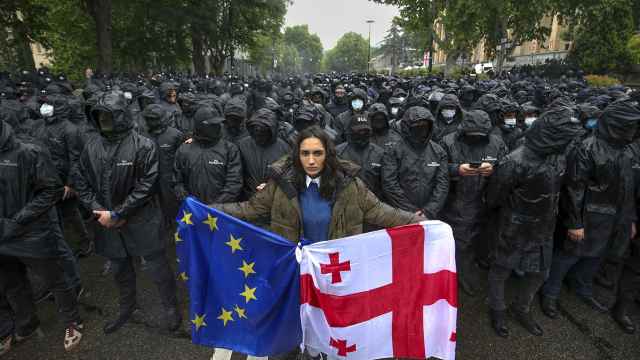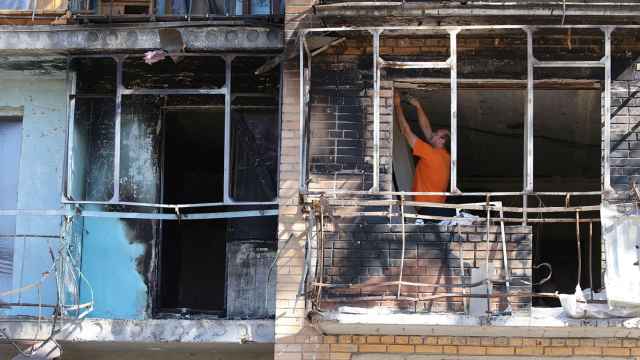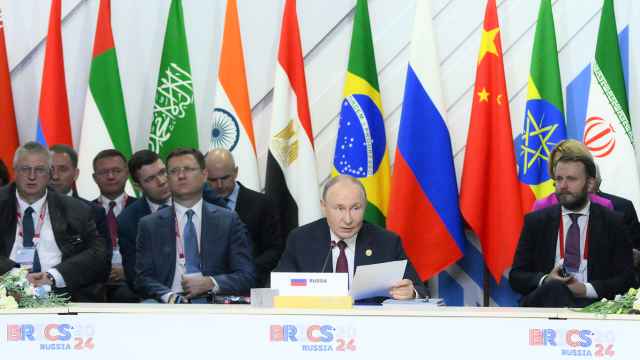The upcoming referendum on changes to the Constitution is more of a symbolic gesture than a legal necessity.
Senior officials already disregarded Russian law in coming up with a way to keep President Vladimir Putin in office for another two terms, and the only sanction required for this political sleight of hand was the approval of the two houses of Parliament and Putin’s signature. But Putin wanted to act out the ritual of the entire Russian nation lining up in support.
But why bother?
Perhaps it is a primitive initiation rite, with tens of millions of Russians directing their spiritual energy through their ballots to the president. Hand in hand in an unbroken chain stretching across the country, Russian voters will form a sort of high-voltage electrical line that will transmit power to the president.
Then, in his unerring wisdom, Putin will draw on that “spiritual current” to guide the country — humbly, and with no thought for himself or his friends — through his next 12 years in office.
Putin will make this social contract with every Russian citizen and not only with the ruling elite and loyal oligarchs. After all, the oligarchs and senior officials should bear in mind that they are dispensable, whereas the people are forever.
At least, that’s the picture Putin is trying to paint.
The plebiscite on July 1 is really just a vote of confidence for Putin. As everyone knows, the obliging politicians in the Duma and Federation Council will rubber stamp whatever Putin proposes, so it would be risky for him to rely on their opinion alone. No, for something this important, Putin must get the whole population involved, so that there will be no excuses later.
He is calling on everyone to vote. That way, those who oppose the new Constitution will see that they are in the minority.

However, the plan to conduct this mad electoral ritual in the midst of a pandemic has failed.
To understand why, just study the way the vote is being framed. Russia is full of billboards and dozens of commercials advertising the referendum.
The slogans suggest that this constitutional amendment is of such vital importance that even Russia’s animals won’t survive another day without it. Voters are told that this is the only way to show due respect to Russia’s few remaining World War II veterans, who have waited their entire lives for this glorious opportunity to change the country’s Constitution.
The only thing missing from the ads is mention of the fact that the amendments will essentially “zero out” Putin’s previous terms in office and enable him to serve two more.
What should have been a triumphant usurpation of power — like the emperor entering Rome amidst a hail of rose petals and cheering crowds — has turned instead into a timid attempt to write the onerous terms of a loan contract in letters so small that the borrower will sign without reading them.
The original significance and gravity of the vote was lost once the pandemic hit, small businesses collapsed and people spent the last of their savings just trying to survive. Against this backdrop, Levada Center surveys show Putin’s ratings dropping, with the result that what once seemed important now looks improper.
It is almost indecent of Putin — who had hoped to parade in triumph — to demand that residents pay attention to his petty concerns about “zeroing out” his terms.
Putin has already done everything possible to distance himself from unpopular decisions. To this day, he has taken no responsibility for the decision to raise the retirement age. He prefers that the government take the heat for that one. He employed similar tactics regarding the announcement of quarantine measures and the postponement of the vote on the Constitution, foisting both responsibility and blame on his regional governors. Clearly, none of these things was worth risking his precious ratings over.
Tinkering with Constitutional limits to presidential terms can only make the people angry — and for good reason. Better to tuck that bitter pill in a candy wrapping of posters and commercials proclaiming the need to preserve the Russian language and protect animals — never mentioning the “zeroing out” clause.
A Message from The Moscow Times:
Dear readers,
We are facing unprecedented challenges. Russia's Prosecutor General's Office has designated The Moscow Times as an "undesirable" organization, criminalizing our work and putting our staff at risk of prosecution. This follows our earlier unjust labeling as a "foreign agent."
These actions are direct attempts to silence independent journalism in Russia. The authorities claim our work "discredits the decisions of the Russian leadership." We see things differently: we strive to provide accurate, unbiased reporting on Russia.
We, the journalists of The Moscow Times, refuse to be silenced. But to continue our work, we need your help.
Your support, no matter how small, makes a world of difference. If you can, please support us monthly starting from just $2. It's quick to set up, and every contribution makes a significant impact.
By supporting The Moscow Times, you're defending open, independent journalism in the face of repression. Thank you for standing with us.
Remind me later.



